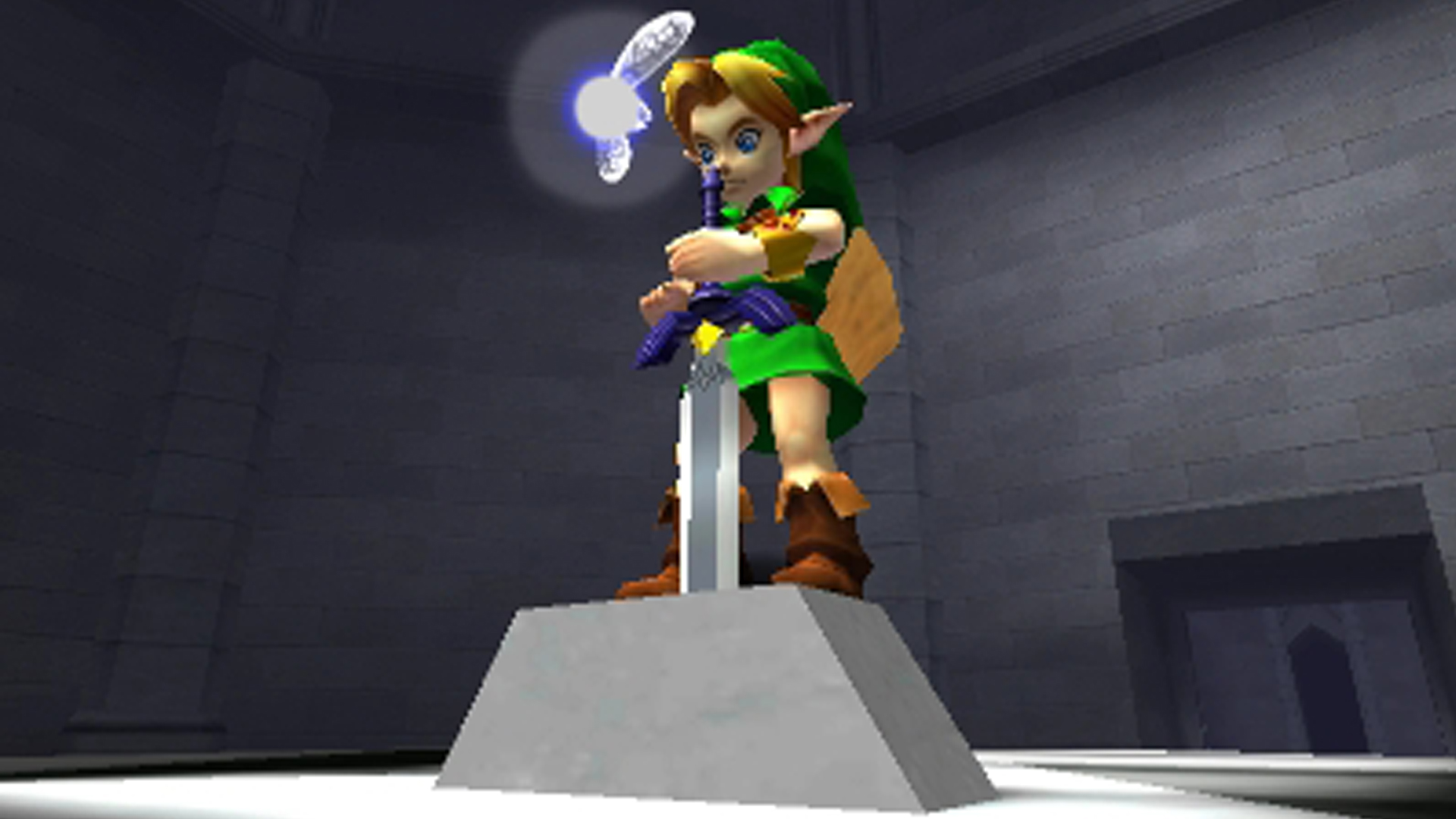
The Legend of Zelda: Ocarina of Time is an all-time classic - an early masterpiece of 3D gaming whose influence can still be seen to this day, and unquestionably one of the best N64 games ever made. But people have been complaining about Link's fairy companion Navi and her annoying advice since the game's launch in 1998, and she arguably set the stage for decades worth of irritating tutorials and hints in video games. It turns out that even Shigeru Miyamoto himself always knew that Navi's role in the N64 classic was less than ideal.
"I think the way we give hints is still a little too unfriendly," Miyamoto admitted in an interview for a 1999 Japanese strategy guide, which has been translated by shmuplations. "Speaking plainly, I can now confess to you: I think the whole system with Navi giving you advice is the biggest weakpoint of Ocarina of Time. It's incredibly difficult to design a system that gives proper advice, advice that's tailored to the player's situation. To do it right, you'd have to spend the same amount of time as you would developing an entire game, and I was very worried we'd be digging ourselves into a hole, if we pursued perfection there…"
Miyamoto went on to say that "if you read Navi's text, she says the same things over and over. I know it makes it sound bad, but we purposely left her at a kind of 'stupid' level. I think if we'd tried to make Navi's hints more sophisticated, that 'stupidity' would have actually stood out even more. The truth is I wanted to remove the entire system, but that would have been even more unfriendly to players. You can think of Navi as being there for players who stop playing for a month or so, who then pick the game back up and want to remember what they were supposed to do. It's a brazen excuse, I know. (laughs)"
These days, Ocarina of Time is not considered a particularly difficult game, but when it was new players were still coming to terms with the very idea of solving puzzles and fighting monsters in a 3D space. Miyamoto comes back to the struggle of balancing the game's difficulty level several times over the course of the interview, noting that despite all of Navi's hints about the puzzles, he "heard many people saying how they couldn't solve them without a strategy guide."
A universal solution to the problem of difficult puzzles is tough to implement - just look at the response to God of War Ragnarok's overly generous hints if you want a modern example. "We've found that the sections people need hints for vary from person-to-person," Miyamoto said of Ocarina of Time. "There's no consistency. That can't be helped, though, in a game like Zelda which combines action and puzzle solving."
While historically Nintendo has downplayed the influence of other popular games on its own work, in this interview Miyamoto did cite Japan's most beloved RPG series as a lamppost for making challenging games. "Even in the Dragon Quest series," Miyamoto said, "people don't praise [designer Yuji] Horii and [director and programmer Koichi] Nakamura for the exquisite balance; it's rather that the unforgiving difficulty in some places ended up making it more memorable."
Zelda games since Ocarina of Time have still struggled with how much to emphasize difficulty in both puzzles and combat over the years, and some of the series' later hint systems - yes, I'm looking straight at Fi in Skyward Sword - would end up being even more annoying than Navi was in the first place. With the success of Breath of the Wild, it seems Nintendo has grown more confident in letting you figure things out for yourself and find your way into impossibly tough battles, and I think the final boss of Tears of the Kingdom might be the toughest fight in the history of the series. But the fact that some of you are probably already typing up comments about how easy that battle was is a perfect illustration of how hard it is to get the balance right.
Ocarina of Time still ranks among the best Zelda games ever.







